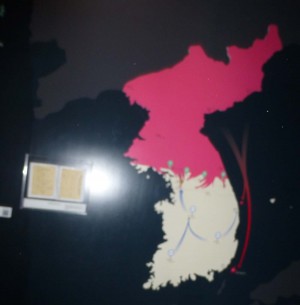The Complexity of Re-uniting the Koreas
On Tuesday evening, 24 February, Colin Chapman, immediate past president of AIIA NSW, gave us his impressions of the prospects of a re-united Korea. He was joined by former AIIA councillor and criminologist Professor Duncan Chappell. Both were reflecting on their impressions gained during an AIIA NSW study tour to the Republic of Korea in October 2014.
Colin’s views were shaped by a conference he had attended in Seoul the potential economic impact on reunification. There were at least four broad possible scenarios. North Korea could collapse or implode, an event that might possibly be welcomed in Washington, but no one else, certainly not Russia or China, nor the leaders of South Korea, who would be concerned about the economic implications if a large number of North Koreans headed south. From the point of view of the Americans, this option holds the advantage that it would allow the US Congress to end sanctions, essential if US capital is to invest. Second, North Korea could initiate another war. But without serious provocation, aggressive posturing by the leadership in Pyongyang would, hopefully, remain without concrete action. Third, events might eventually lead to re-unifications. Serious talks between the leaders in Pyongyang and Seoul on improving relations were possible this year. Even a summit between Park Geun-hye and Kim Jong-un was possible, but no more than that at this stage. Finally, the present tense but manageable situation, the continuation of a brittle peace between the two Koreas, was the most likely possibility.
Duncan focused on endemic corruption that infected the Korean corporate world. He instanced the recent notorious ferry disaster, the causes of which went right back to massive bribery and kick-backs extending through many corporate linkages into the bureaucratic hierarchy in Seoul. The central government was greatly exercised about white collar crime, a systemic weakness in an otherwise remarkably robust Korean economy.
Report by Richard Broinowski
For the full powerpoint presentation by Colin Chapman, please click on:
For edited parts of Duncan Chappell’s presentation & Colin Chapman’s presentation:
on https://www.facebook.com/aiiansw
